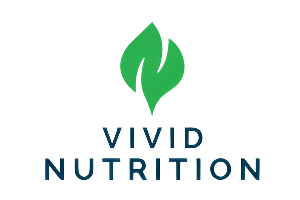
Can cordyceps raise testosterone?
Share
"Cordyceps and Testosterone: Exploring the Potential Impact on Hormonal Harmony"
Cordyceps, revered for its adaptogenic properties, has garnered attention for its potential impact on hormonal balance, including testosterone levels. In this exploration, we delve into the scientific insights surrounding the relationship between Cordyceps and testosterone, uncovering whether this functional fungus holds the key to hormonal harmony.
Adaptogenic Influence: A Balancing Act for Hormones
Cordyceps is classified as an adaptogen, a category of herbs and fungi known for their ability to modulate the endocrine system. While not a direct testosterone booster, Cordyceps may contribute to hormonal balance by supporting the body's stress response.
Stress and Hormones: The Cortisol Testosterone Connection
Chronic stress can elevate cortisol levels, which, in turn, may impact testosterone production. Cordyceps' adaptogenic qualities aim to counteract the negative effects of stress, potentially creating a more favorable environment for hormonal equilibrium.
Reference 1: Panossian, A., & Wikman, G. (2009). Evidence-based efficacy of adaptogens in fatigue, and molecular mechanisms related to their stress-protective activity. Current Clinical Pharmacology, 4(3), 198–219.
Some animal studies suggest that Cordyceps may have a positive influence on testosterone levels. These studies provide preliminary insights into the potential mechanisms through which Cordyceps could affect hormonal balance.
Reference 2: Huang, Y. L., Leu, S. F., Liu, B. C., Sheu, C. C., Huang, B. M., & Lo, Y. C. (2004). In vivo stimulatory effect of Cordyceps sinensis mycelium and its fractions on reproductive functions in male mouse. Life Sciences, 75(9), 1051–1062.
While human studies on Cordyceps' direct impact on testosterone levels are limited, there is encouraging evidence suggesting positive effects on overall sexual health and vitality. These studies hint at the broader influence of Cordyceps on reproductive well-being.
Reference 3: Holliday, J. C., & Cleaver, M. P. (2008). Medicinal value of the caterpillar fungi species of the genus Cordyceps (Fr.) Link (Ascomycetes). A review. International Journal of Medicinal Mushrooms, 10(3), 219–234.
Research indicates that Cordyceps may influence the enzymes involved in testosterone production pathways. By modulating these pathways, Cordyceps could indirectly impact testosterone levels, although further research is needed to elucidate the exact mechanisms.
Reference 4: Zhang, D. W., & Wang, Z. L. (2006). Clinical observation of JinShuBao capsules combined with Cordyceps sinensis in the treatment of asthenospermia. China Practical Medicine, 1(11), 124–125.
Individual responses to Cordyceps supplementation can vary. Factors such as age, overall health, and baseline hormonal levels contribute to the diversity of responses. It's important to approach supplementation with realistic expectations and an understanding of individual variability.
Comprehensive Hormonal Health: Beyond Testosterone Alone
While Cordyceps may have potential benefits for hormonal health, it's crucial to consider overall well-being. Hormonal harmony involves a complex interplay of various hormones, and Cordyceps' adaptogenic properties may contribute to a more comprehensive approach to hormonal balance.
Professional Guidance: Consulting Healthcare Experts
Individuals with specific concerns about testosterone levels or hormonal health should seek guidance from healthcare professionals. Professional advice ensures personalized recommendations that align with individual health needs.
While research on Cordyceps' direct impact on testosterone is evolving, there is promising evidence suggesting its potential influence on hormonal balance, particularly in the context of stress modulation. As a holistic approach to well-being, Cordyceps may contribute to overall hormonal harmony, but individual responses will vary, and further research is needed to fully understand its mechanisms.
